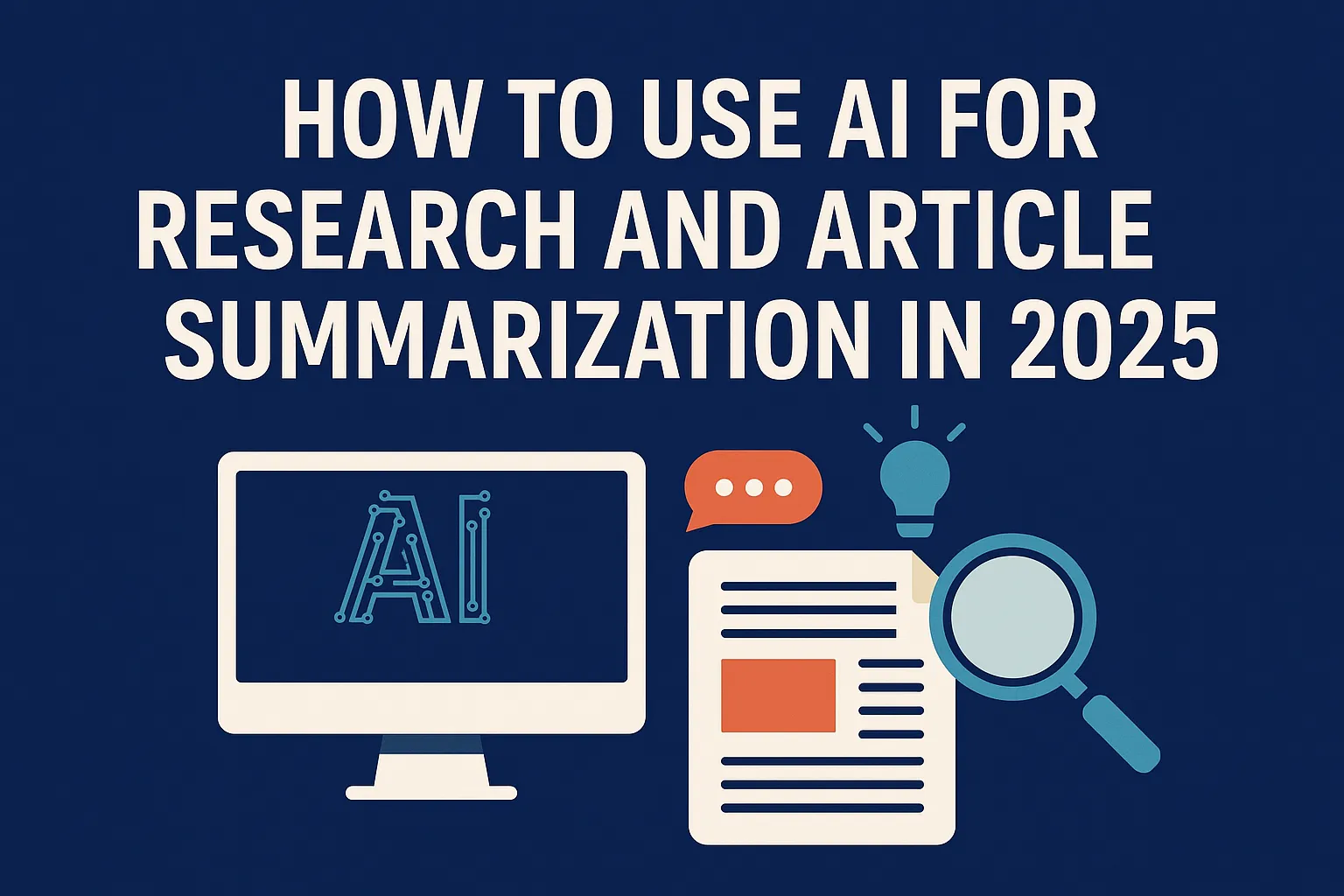How to Use AI for Research and Article Summarization in 2025
Researching online can be overwhelming — thousands of articles, studies, and papers to read. In 2025, AI tools make it possible to summarize articles and research papers in seconds, helping students, writers, and professionals save time and focus on insights. Here’s how.
Why Use AI for Research Summaries?
- Save hours of reading time
- Extract key insights instantly
- Organize findings into notes or reports
- Boost productivity for students and professionals
Best AI Tools for Research and Summarization
1. Perplexity AI
A research-focused AI that provides summarized answers with cited sources.
2. Scholarcy
Highlights key findings, references, and conclusions from academic papers.
3. Elicit.org
Designed for scientific research, helps summarize studies and find relevant papers.
4. ChatGPT with Browsing
Summarizes long articles and provides explanations with additional context.
5. Notion AI
Turns research notes into summaries and organizes them into knowledge bases.
Step-by-Step: Summarizing Research with AI
1. Collect Sources
Find articles, papers, or reports you want summarized.
2. Upload or Paste Text
Use tools like Scholarcy or ChatGPT to process the content.
3. Ask for Summaries
Prompt the AI: “Summarize this article in 5 key points.”
4. Organize Findings
Use Notion AI or Elicit to structure summaries by topic or project.
5. Review for Accuracy
Always double-check AI outputs, especially for academic or business-critical work.
Pro Tip
Combine Perplexity AI for quick answers with Scholarcy for detailed academic summaries.
Common Mistake
Copying AI summaries without verifying sources. Always ensure credibility.
FAQ
Is AI good for academic research?
Yes, but it should complement traditional methods, not replace them.
Can AI summarize PDFs and studies?
Yes, many tools support PDFs and full-length research papers.
Are AI research tools free?
Most offer free tiers, but advanced features require paid plans.

